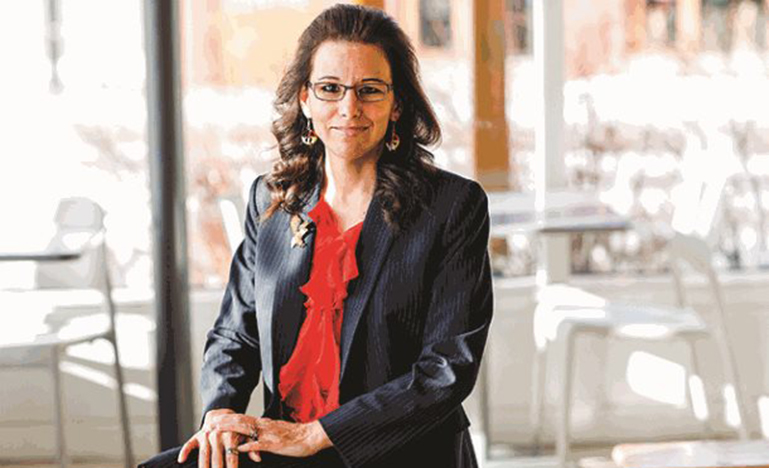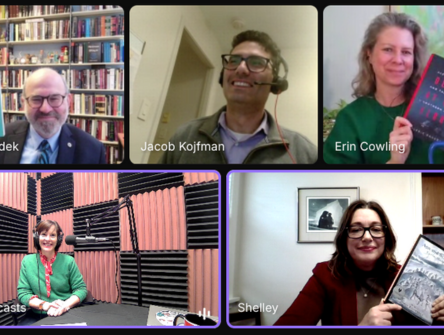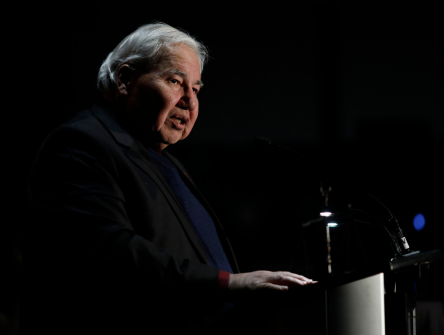Shaping the next generation of lawyers
Angelique EagleWoman, the new dean of law at Lakehead University's Bora Laskin Law School, on truth and reconciliation, access to legal education and leading the next generation of lawyers.

National: Lakehead's first crop of law students graduates this year. Are they prepared to meet the challenges of the marketplace?
Angelique EagleWoman: By the time our students graduate, they’ve done sentencing submissions in criminal law, they’ve worked through a trial litigation timeline and they’ve drafted a contract. All of these things build their confidence so when they enter the profession they can truly take on legal issues.
Also, they’ve benefited from the required academic placement within their third year. We’re getting really positive feedback from the placements that our law students are able to really hit the ground running.
N: What can other law schools learn from Lakehead’s experience so far?
AE: As the newest law school in Canada, Lakehead responds to a call to make legal education more accessible and a better platform for graduates to actually know how to practise law. We are bringing skills (and) exercises into the classroom and making it core to what the students do and learn.
N: How would you like to see legal education evolve?
AE: Every law school needs to determine how to meet their community’s needs as well as national legal needs. We are committed to rural, small-town practice, natural resources and environmental law, and aboriginal law and issues related to Aboriginal Peoples. Because of our geography, we are in a great location to address issues that affect northern Ontario. With aboriginal law, of course, we have that as a central part of what our education is about.
It’s in part a response to the Truth and Reconciliation Commission, but we were actually in front of those recommendations with theses mandates.
N: Do you think the Commission’s recommendation requiring that all law students take a mandatory class in aboriginal law is enough?
AE: The recommendation is the right starting place. One of the things about aboriginal law is often people think it’s too complicated to wrap their minds around. By having mandatory courses students are going to have a familiarity with the history and legal relationships between the Canadian government and indigenous communities that’s going to allow them to take it in stride and think about it in ways that can lead to solutions.
N: Lakehead University is committed to increasing Aboriginal Peoples’ access to legal education. How?
AE: Law touches every aspect of an aboriginal person’s life, even if they aren’t aware of it, and I think it’s showing those connections and the ability to make positive changes that will lead aboriginal people to consider careers in law.
N: How will your own experience as a tribal judge and practising lawyer inform what you want to achieve as dean?
AE: What I bring is the ability to offer comparative perspectives with things that have happened in the U.S. and internationally. The UN Declaration of the Rights of Indigenous People is something I’ve been engaged with since there was a draft declaration, and I’m very pleased to hear the Prime Minister, Justin Trudeau talking about it, setting the standard for relationships between the Canadian government and First Nations and Canadian people.
N: As you begin your tenure, what are your top priorities?
AE: Making sure that we have a robust faculty and the ability to deliver our curriculum in the best possible way for our students. I’m very much looking forward to convocation and our charter class graduating. They are our first alumni and we have a lot of pride in all they’ve done and will do.
Part of (the aboriginal) world view is that when we do things, we look forward to their consequences over seven generations. That’s something I’m hoping for this law school, that it continues to have that goal.
This interview was edited and condensed for publication.


